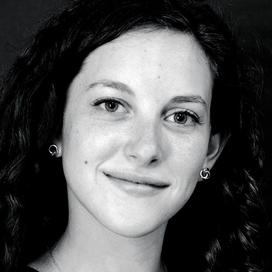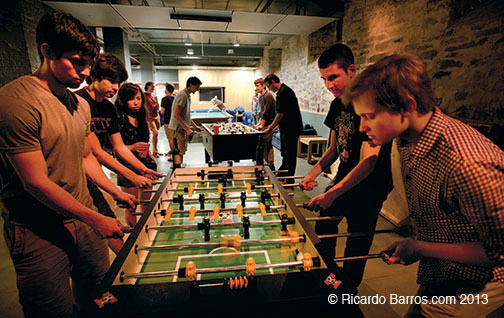Student Dispatch: For Grad Students, a Chance to Say What They Want From Nassau Hall
It was a late Sunday evening, and the New Graduate College lounge smelled like Papa John’s finest pies. Students carrying backpacks and handfuls of paper and pencils were returning from The Game, a student-run scavenger hunt that sends players across campus chasing hidden messages in Sudoku puzzles or song lyrics.
The team-based competition provided an opportunity to build a sense of place and community — an experience that can feel like a rarity for many graduate students.
The continuing perception that grad students are marginalized on campus was among the concerns that President Eisgruber ’83 heard a few days earlier when he met with graduate students to discuss what they want to see from the new administration. The conversation often returned to graduate students’ place on campus, as well as how to prioritize the resources available to them.

Jobs: Given dire prospects for securing faculty positions, students and the president agreed that it was time for frank conversations about how to better prepare for career paths beyond academia. “Understandably, the bias is to the academy because we uniquely support that next generation of professionals,” Eisgruber said, “but we need to prepare students for something other than replicating the careers of their dissertation advisers.”
He said Princeton is searching for an executive director of Career Services and that new career-counseling models “are not just about matching résumés with openings ... but about identifying pathways for students into different kinds of careers.” One student expressed concern that Career Services has only one staff member dedicated to working with grad students.
Housing: A perennial concern, housing will undergo dramatic changes with the addition of the Lakeside apartments next year and the demise of the Butler Tract housing. Eisgruber reiterated the administration’s commitment to provide housing for 70 percent of the graduate-student population, but some grad students said that percentage should be higher.
Campus pub: A bar for students in the center of campus would help foster informal gatherings, grad students said, endorsing the proposal by a University task force to create a pub in Café Vivian at Frist Campus Center.
Community: Asked about how to better incorporate graduate students into campus culture, Eisgruber said that the needs of undergraduates and graduate students are very different: Undergraduates, away from home for the first time, benefit from hands-on support that their graduate counterparts would find silly at best, he said.
Students pushed back. “If Princeton is a family and undergraduates are the youngest children, we can be made to feel like the neglected older child,” said one. “Not that we need someone to tell us when to go to bed, or to eat healthy food,” she added.
“Are you sure about that last part?” laughed Eisgruber, with a pointed look at the pizza and soda at the event. “I had to walk all the way down the hall to get some water.”












No responses yet